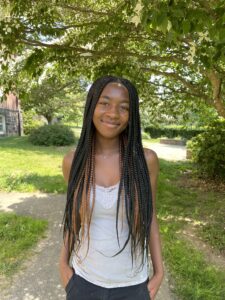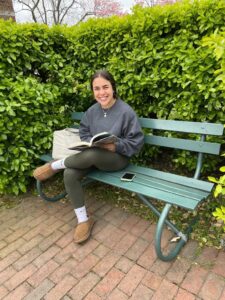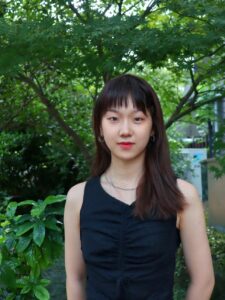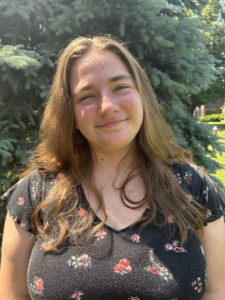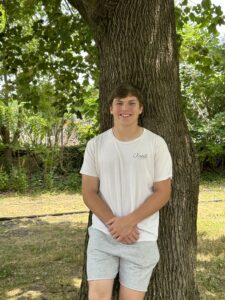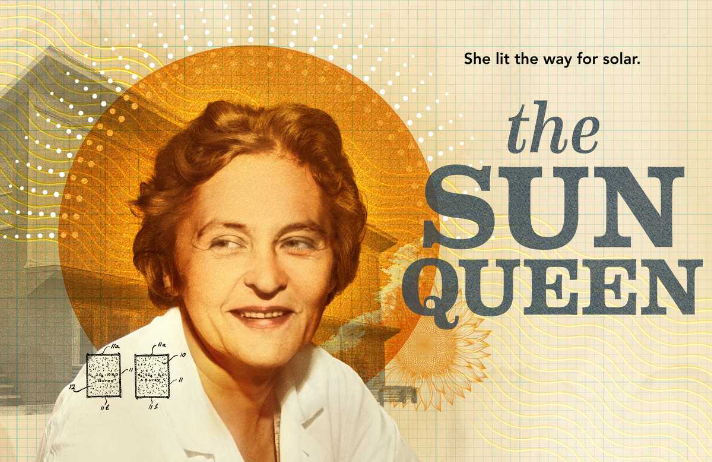
For History teacher Sara Shreve-Price, Ph.D., the magic of The Sun Queen being released now is that it happens to tie in beautifully with the courses she is teaching.
“I am so excited; I’ve been telling my students about it all year,” she said.
Airing on PBS’ American Experience on April 4, The Sun Queen tells the story of chemical engineer and inventor Maria Telkes, who designed and built the world’s first successfully solar-heated modern residence and identified a new chemical that could store solar heat. Remarkably, she accomplished all of this despite opposition, interference, and ill-will from her boss and colleagues—all men—at MIT.
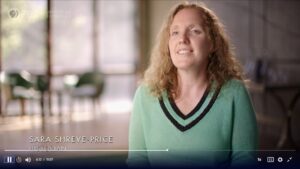
“The producers reached out to me because Maria Telkes features prominently in a chapter of my dissertation, which is on solar housing initiatives in the US in the first half of the twentieth century,” explained Sara. “It’s a super-fascinating topic that I am delighted to talk endlessly about!”
Sara is teaching a wide variety of courses this year: Economics, the Social Science of Climate Change, Women’s History, and American Architecture and Urbanism. Remarkably, Maria Telkes’ story is relevant to all of them.
A big part of the story of solar housing in the first half of the twentieth century, explains Sara, is how the difference between a good engineering idea and viable financial idea is connected to what resonates with people at any given time, which largely has to do with behavioral economics and marketing.
“I created the climate change course in large part due to my dissertation work on Maria Telkes,” Sara explained. “The focus of this course is on how to use our understanding of psychology, economics, politics, and social studies to create effective plans for change. We often talk about how the science of solving climate change is actually the easy part. Scientists have been telling us for years exactly how to solve the problem. The issue is that our societies are not willing to do what is necessary, so the most important work lies in figuring out how to communicate in ways that resonate with people. This tension—between science and the public—was really at the heart of the conflict between Maria Telkes and her colleagues at MIT. She was amazingly adept at communicating with the public and getting people excited about solar housing—in the 1940s!—and there is a lot we can learn from that.”
The tie-in to her Women’s History course is clear. Telkes’ unwillingness to conform to men’s expectations of what women should do was her greatest challenge. An immigrant, Telkes earned her doctorate in physical chemistry, and went on to become one of very few women at MIT in a field that is still heavily dominated by men today. “In Women’s History, we talk about the double-bind for women,” said Sara. “Often, the very characteristics necessary for a woman to climb a professional ladder are the ones deemed acceptable in men but vilified in women (ambition, for example).”
Sara’s American Architecture and Urbanism course this spring will focus largely on domestic architecture and the various design components in homes. Students will be challenged to think about how people have worked to create comfortable homes, and how environmental factors, like sun exposure, impact their design. “Much of this relates to the work Telkes and others have been doing for centuries, trying to optimize homes for energy efficiency, long before that was even a term!” said Sara.
The work of Telkes and others also informed students Sara worked with on the annual George School Green Initiative project and as part of her Social Science of Climate Change course. They utilized passive solar heating and cooling concepts in the development of low-energy solutions to help cool Bancroft, one of the academic buildings on campus.
“Telkes was a woman with a strong personality who was not shy about sharing her ideas,” said Sara. “She was criticized and undermined by her male colleagues for being strong-willed and unwilling to submit to their authority. Her story, for me, illustrates the value of working toward a more equitable society that can potentially solve huge problems like climate change by elevating and utilizing all of our available talent.”
The Sun Queen airs on PBS on Tuesday, April 4. Watch a preview here






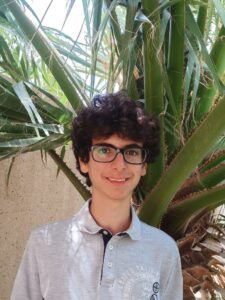 Monastir, Tunisia, and Amman, Jordan
Monastir, Tunisia, and Amman, Jordan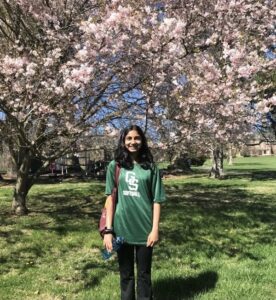 Irvine, CA
Irvine, CA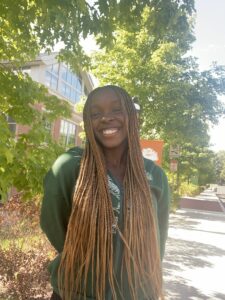 Feasterville-Trevose, PA
Feasterville-Trevose, PA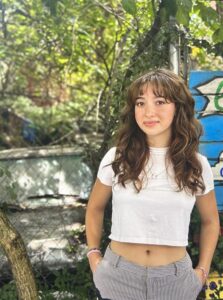 New Hope, PA (Previously NYC)
New Hope, PA (Previously NYC)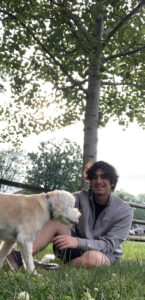 Richboro, PA
Richboro, PA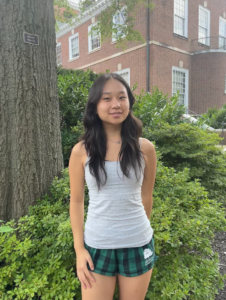 Englewood, NJ
Englewood, NJ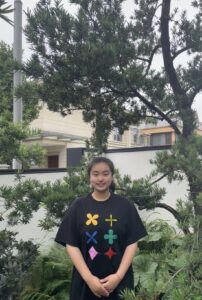 Ningbo, Zhejiang, China
Ningbo, Zhejiang, China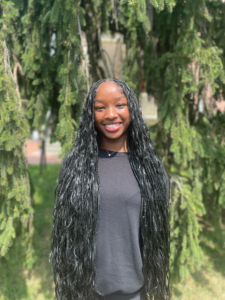 Willingboro, NJ
Willingboro, NJ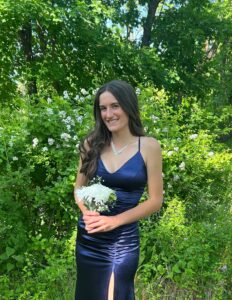 Yardley, PA
Yardley, PA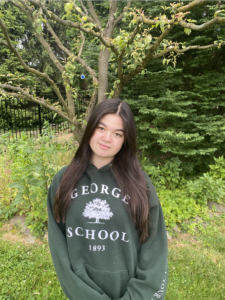 Newtown, PA
Newtown, PA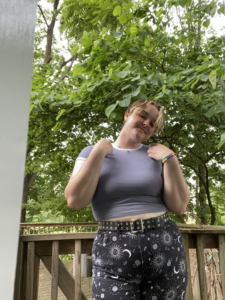 Holicong, PA
Holicong, PA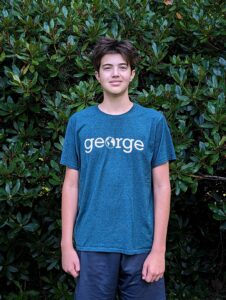 Newtown, PA
Newtown, PA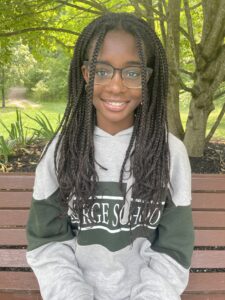 Hamilton, NJ
Hamilton, NJ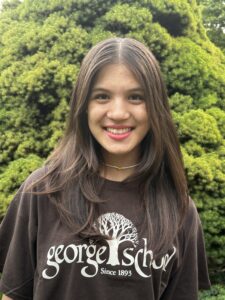 Yardley, PA
Yardley, PA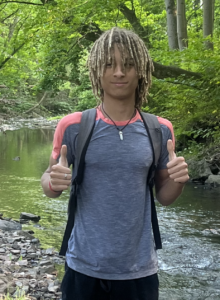 Lambertville, NJ
Lambertville, NJ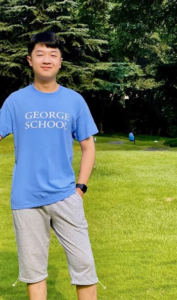 Chongqing, China
Chongqing, China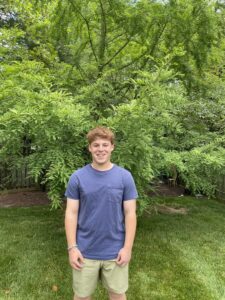 Pennington, NJ
Pennington, NJ Yardley, PA
Yardley, PA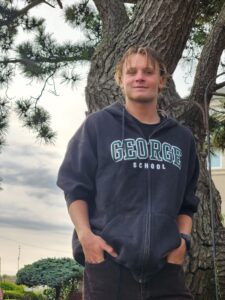 Bensalem, PA
Bensalem, PA Borgota, Colombia
Borgota, Colombia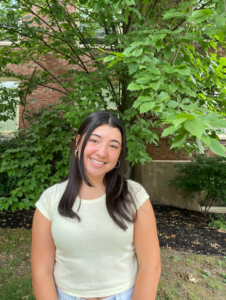 Newtown, PA
Newtown, PA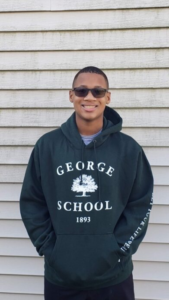 Burlington, NJ
Burlington, NJ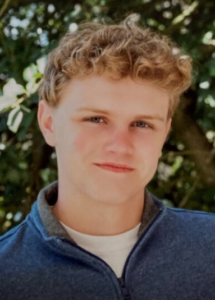 Langhorne, PA
Langhorne, PA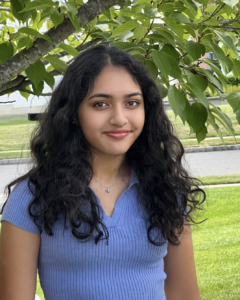 Princeton, NJ
Princeton, NJ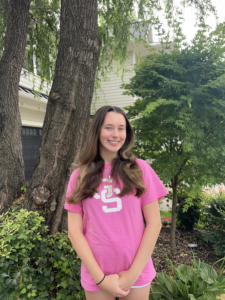 Langhorne, PA
Langhorne, PA New York City, NY
New York City, NY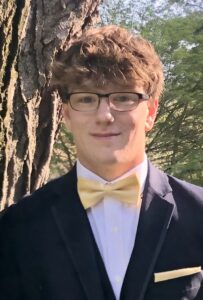 New Hope, PA
New Hope, PA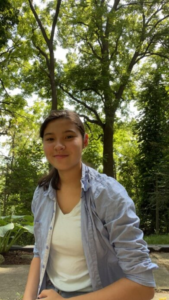 St. Catharines, Ontario, Canada
St. Catharines, Ontario, Canada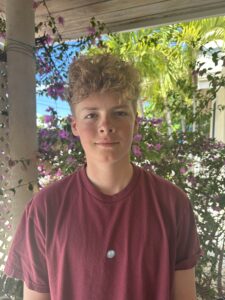 Providenciales, Turks and Caicos Islands
Providenciales, Turks and Caicos Islands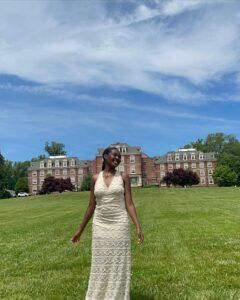 Willingboro, NJ
Willingboro, NJ Princeton, NJ
Princeton, NJ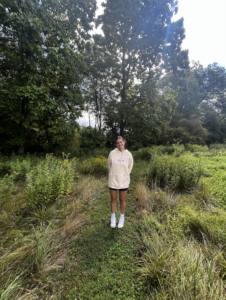
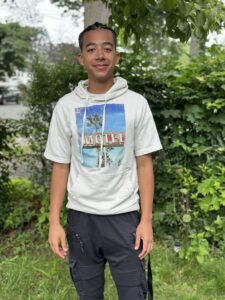 Newark, NJ
Newark, NJ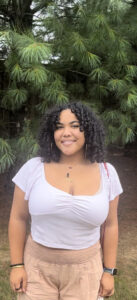 Trenton, NJ
Trenton, NJ Newtown, PA
Newtown, PA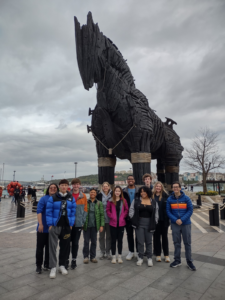
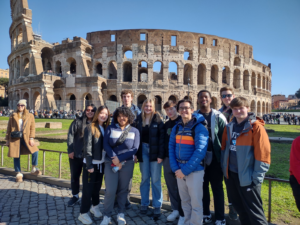
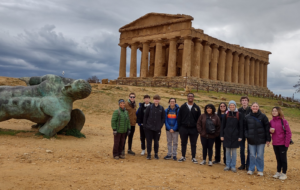




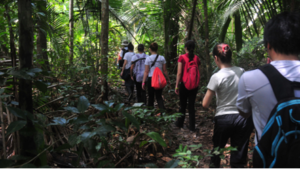
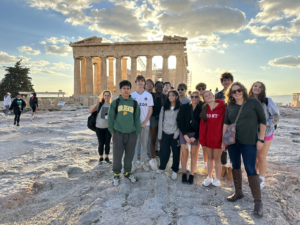
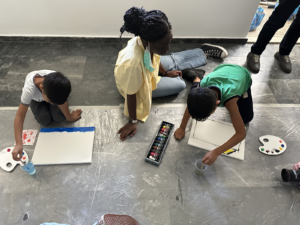
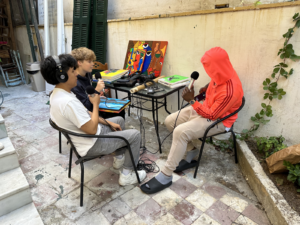

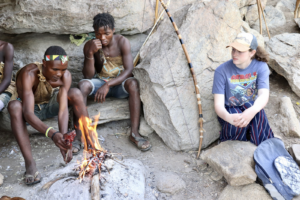
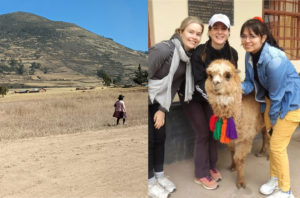

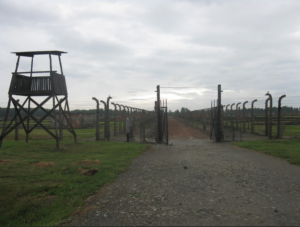


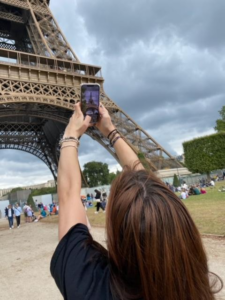
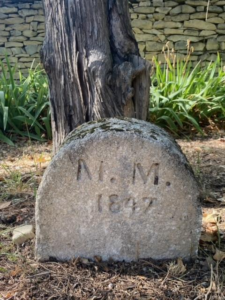
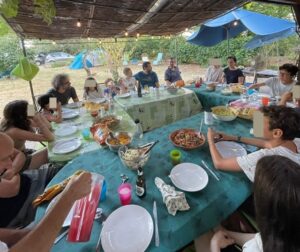
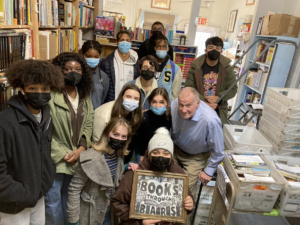
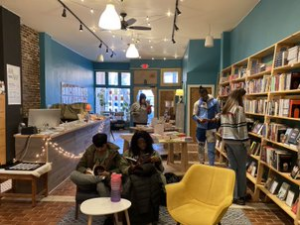
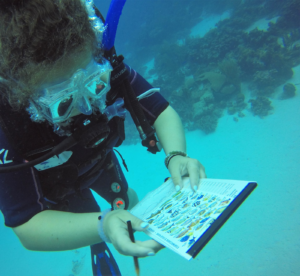
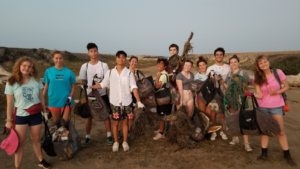

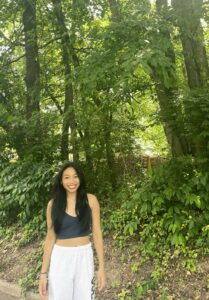 Lawrence, NJ
Lawrence, NJ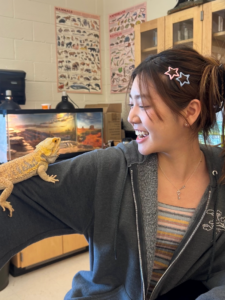 Seoul, South Korea
Seoul, South Korea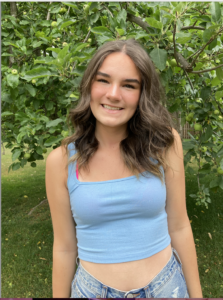
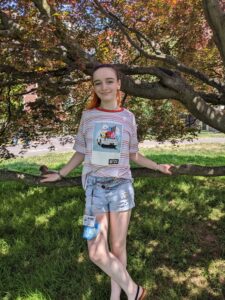 Milwaukee, Wisconsin
Milwaukee, Wisconsin Pennington, NJ
Pennington, NJ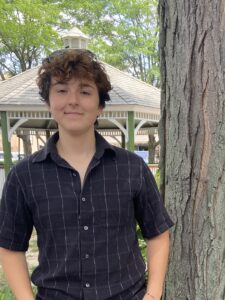 Jenkintown, PA
Jenkintown, PA Ottsville, PA
Ottsville, PA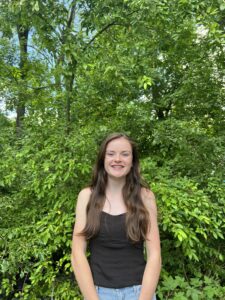 Yardley, PA
Yardley, PA Providenciales, Turks and Caicos Islands
Providenciales, Turks and Caicos Islands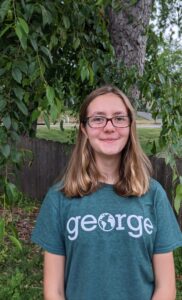 Hopewell, NJ
Hopewell, NJ
 Pottstown, PA
Pottstown, PA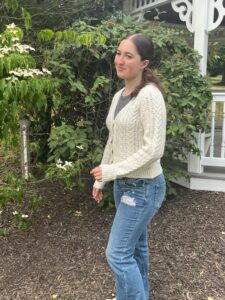 Playa del Carmen, Quintana Roo, México
Playa del Carmen, Quintana Roo, México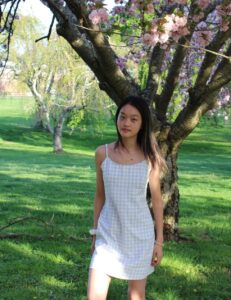 Shanghai, China
Shanghai, China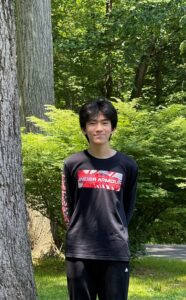 Beijing, China
Beijing, China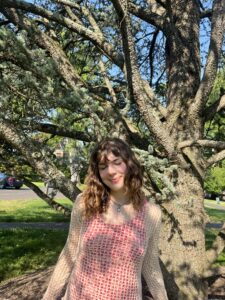 Yardley, PA
Yardley, PA Beijing, China
Beijing, China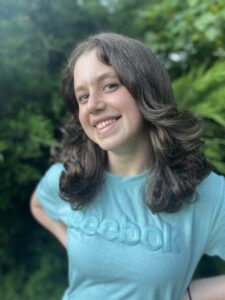 Holland, PA
Holland, PA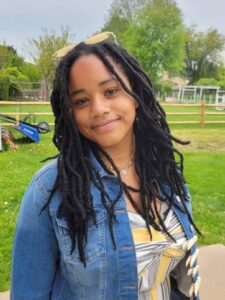 Langhorne, PA
Langhorne, PA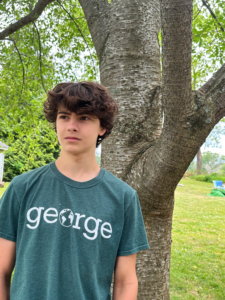 Ringoes, NJ
Ringoes, NJ New Hope, PA
New Hope, PA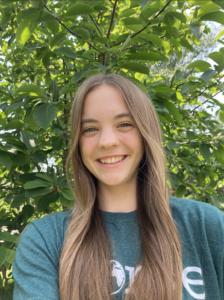 Dreshner, PA
Dreshner, PA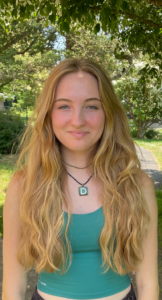 Yardley, PA
Yardley, PA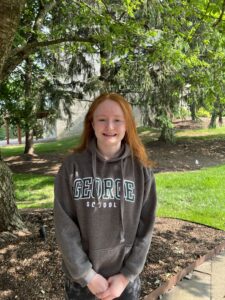 Yardley, PA
Yardley, PA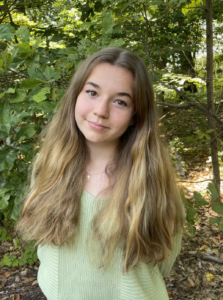 PA
PA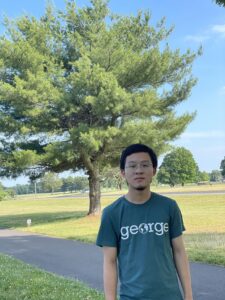

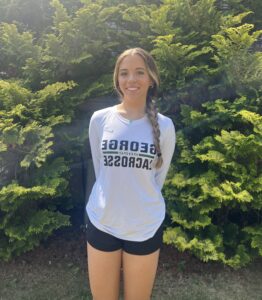
 Xi’an, China
Xi’an, China